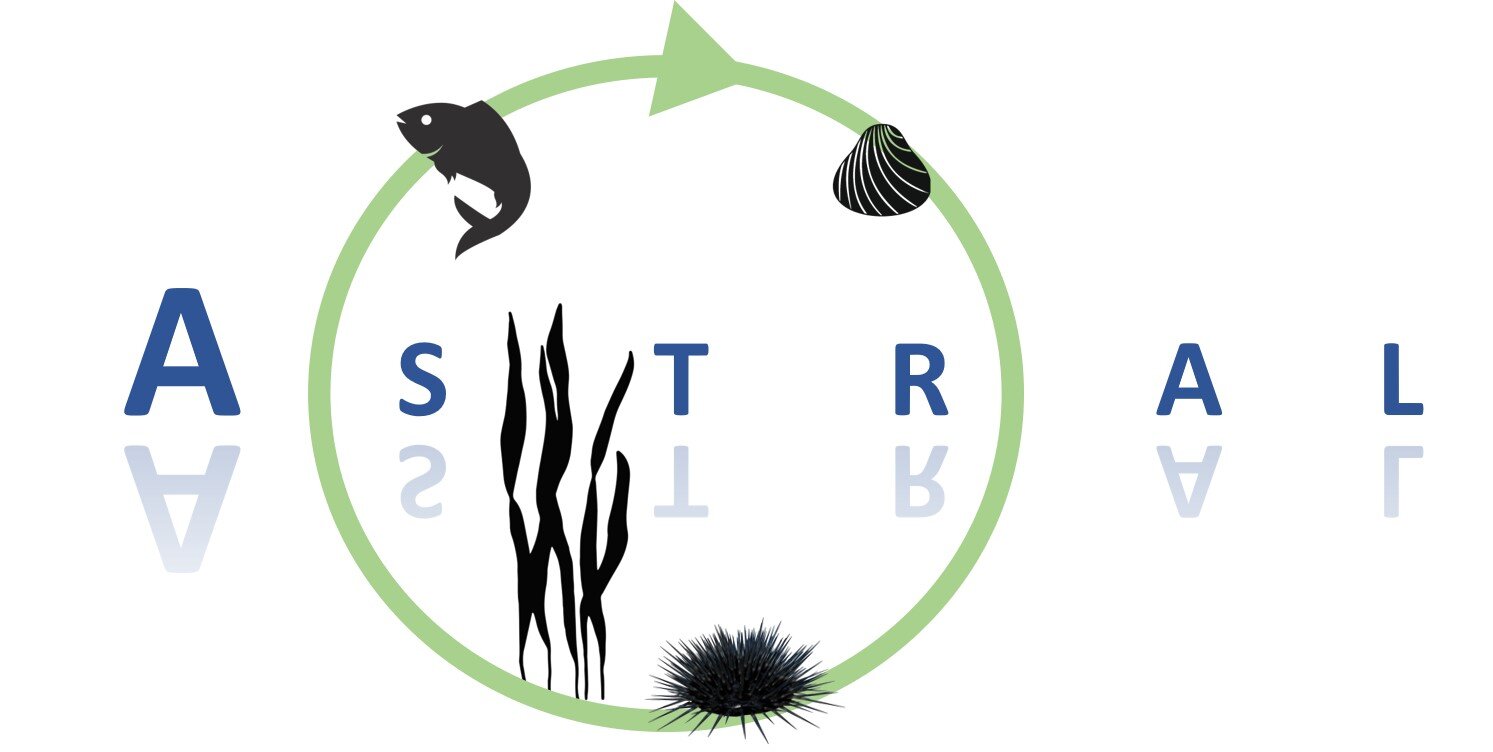IMTA Lab – South Africa
Buffeljags Abalone Farm showing abalone tanks integrated with Ulva paddle raceways, with the latter enabling partial water recirculation.
(Photo credit: Viking Aquaculture)
Integrated aquaculture of abalone & urchins with sea lettuce (Ulva)
IMTA was originally envisaged to involve several species, with their aquaculture linked together analogous to an ecosystem. Integrated aquaculture in land-based systems in South Africa has developed somewhat differently, and in some ways more simply, with the successful co-culture of a high-value product (the South African abalone, Haliotis midae) with a seaweed (a species of sea lettuce, now known as Ulva lacinulata). The latter is not sold and was originally grown using the nutrients released in abalone effluent, allowing these nutrients to be recycled in a circular fashion by returning the seaweed to the abalone for feed. Some abalone farms, including those of our partner Viking Aquaculture, went a step further, in an innovative system using the seaweed’s ability to remove toxic ammonia from the effluent to allow partial water recirculation to the abalone tanks (currently ca. 50% recirculation), considerably reducing seawater pumping costs, a dual example of circular economy.
Our first aim in the ASTRAL project involves investigating the operation of the abalone/Ulva integrated system and potentially suggesting ways to improve its operation and sustainability. We will test the effects of increased recirculation, to recognise the limits of seaweed bioremediation in the system, while simultaneously studying the microbiome of the system components. Biosecurity is a critical aspect of all aquaculture and if similar recirculating systems are to remain viable we need scientific insight into microbial components. It is also important to see if the system can be operated successfully at 100% recirculation for short periods, which could be a mitigation measure in the case of Harmful Algal Blooms threatening the operations.
Microbiome sampling
ASTRAL Post-Doctoral Fellow, Dr Marissa Brink-Hull & DFFE scientist Dr Brett Macey taking a microbiome sample in an Ulva raceway
(Photo credit: Mark Cyrus)
Next, we will set up a similar pilot aquaculture system using a different animal, following up pioneering work of our team leaders Prof John Bolton, Dr Brett Macey and Dr Mark Cyrus. In 2021 the first pilot integrated aquaculture system in South Africa with sea urchins has been built and we will test a land-based recirculating system integrating the warm water collector urchin Tripneustes gratilla again with Ulva. We hope this will lead to the first commercial urchin aquaculture in Africa.
Stocking the Urchin/Ulva system
Dr Mark Cyrus from DFFE stocking the newly constructed Urchin/Ulva integrated aquaculture system at Buffeljags, July 2021
(Photo credit Brett Macey)
Finally, we intend to investigate the aquaculture possibilities of an ecological observation: that abalone juveniles in South Africa are most abundant under the local Cape sea urchin Parechinus angulosus. Our ASTRAL Post-Doctoral Fellow, Marissa Brink-Hull, will co-culture these two species and study potential benefits of consumption of urchin faeces as a probiotic or feed for small abalone.
Dr Marissa Brink-Hull and urchins
ASTRAL Post-Doctoral Fellow Dr Marissa Brink-Hull with the Cape urchin Parechinus angulosus
(Photo credit: Rifaat Aziz)
The South African experience has convinced us that the integration of seaweeds with animals in these ways has numerous benefits, environmental and commercial, which can make real contributions to the sustainability of land-based aquaculture and to the necessary pursuit of zero waste in the industry.
(Author: John J Bolton, Emeritus Professor and Senior Research Scholar, Department of Biological Sciences at the University of Cape Town & Brett Macey, Specialist Scientist Aquaculture, at the South African Department of Agriculture, Forestry & Fisheries)




